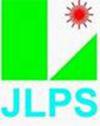High-Precision Surface Profiling Using Multi-Hundred Watts Ultrashort Pulse Lasers and Ultrafast Polygon-Mirror Based Scanner
IF 0.8
4区 材料科学
Q4 MATERIALS SCIENCE, MULTIDISCIPLINARY
引用次数: 5
Abstract
High-precision surface profiling is studied by using ultrashort pulse lasers up to 450 W laser powers and 40 MHz maximum pulse repetition frequency. A polygon-mirror based scan system is applied for ultrafast and flexible laser beam raster scanning providing up to 560 m/s laser beam moving speeds. By investigating the high-average power picosecond and femtosecond laser systems in large-area processing, optimum parameter settings are derived with regard to machining quality, efficiency and throughput. In addition, the influence of the focus spot size on top width and tip angle of trapezoidal micro structures (Riblets) is evaluated. Inspired by bionic surface functionalities, the laser made Riblets are tested in a Goettingen-type wind tunnel to identify their effectiveness for aerodynamic drag reduction in turbulent flows. For the optimum Riblet geometries, a maximum total pressure loss reduction of 1.76% is achieved that is remarkable when comparing with literature data. The drag reducing effect of the Riblets is further confirmed by empirical-analytical and CFD analyses showing up to 6.4% skin friction reduction. By taking into account the effective processing time of 6.0 cm2/min with potential to be further scaled-up with higher laser powers, ultrafast laser-based Riblet profiling could be a key enabling technology to enhance the operational performance in the energy machinery sector.利用数百瓦超短脉冲激光器和基于超快多边形镜的扫描仪进行高精度表面轮廓分析
利用激光功率高达450 W、最大脉冲重复频率为40 MHz的超短脉冲激光器,对高精度表面轮廓进行了研究。一种基于多边形反射镜的扫描系统用于超快和柔性激光束光栅扫描,提供高达560 m/s的激光束移动速度。通过对大面积加工中高平均功率皮秒和飞秒激光系统的研究,得出了加工质量、效率和吞吐量的最佳参数设置。此外,还分析了焦点光斑大小对梯形微结构(Riblets)顶宽和尖端角的影响。受仿生表面功能的启发,激光制造的Riblets在哥廷根式风洞中进行了测试,以确定它们在湍流中减少空气动力阻力的有效性。对于最佳的Riblet几何形状,与文献数据相比,最大总压损失降低了1.76%,这是非常显著的。经验分析和CFD分析进一步证实了Riblets的减阻效果,可减少6.4%的表面摩擦。考虑到6.0 cm2/min的有效加工时间,并有可能在更高的激光功率下进一步扩大,基于超快激光的Riblet剖面可能成为提高能源机械领域操作性能的关键技术。
本文章由计算机程序翻译,如有差异,请以英文原文为准。
求助全文
约1分钟内获得全文
求助全文
来源期刊

Journal of Laser Micro Nanoengineering
工程技术-材料科学:综合
CiteScore
1.90
自引率
9.10%
发文量
18
审稿时长
3 months
期刊介绍:
Journal of Laser Micro/Nanoengineering, founded in 2005 by Japan Laser Processing Society (JLPS), is an international online journal for the rapid publication of experimental and theoretical investigations in laser-based technology for micro- and nano-engineering. Access to the full article is provided free of charge.
JLMN publishes regular articles, technical communications, and invited papers about new results related to laser-based technology for micro and nano engineering. The articles oriented to dominantly technical or industrial developments containing interesting and useful information may be considered as technical communications.
 求助内容:
求助内容: 应助结果提醒方式:
应助结果提醒方式:


